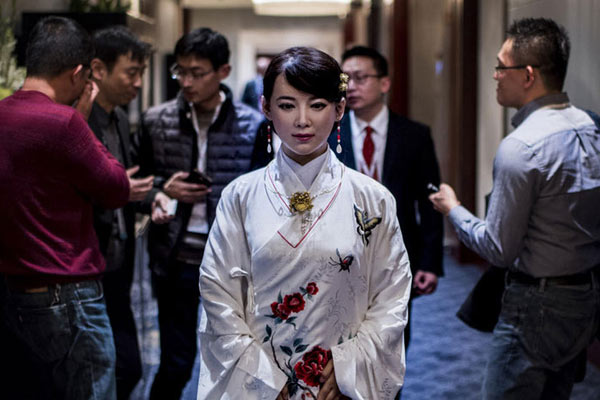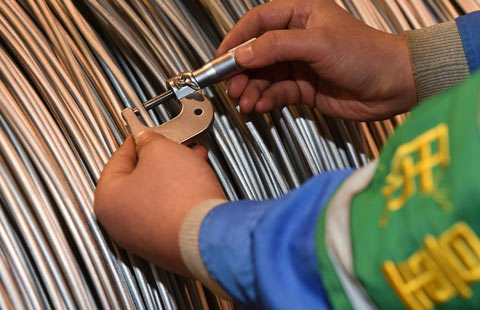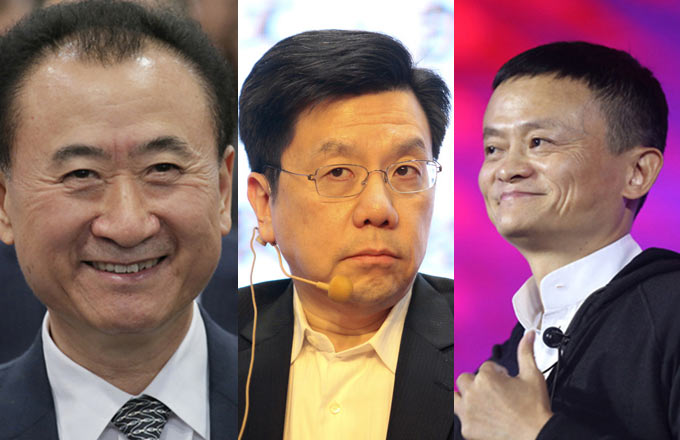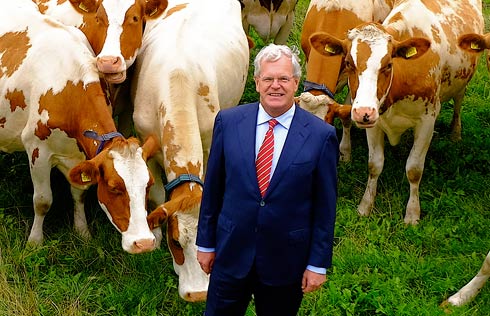Premier sets sights on economic growth
Administrative reform became a top priority after the 18th CPC National Congress. The second plenary session of the 18th CPC Central Committee in February endorsed a plan for the institutional reform and functional transformation of the State Council, which was adopted by the National People's Congress on Thursday. It was Li who led the drafting team.
Li insisted on cutting cabinet departments down to 25 to be more efficient. This round of cabinet restructuring is the seventh to take place in China since the country's reform and opening-up in the late 1970s. Like any reform, this round represents a difficult challenge.
A commentary published in Nouvelles d'Europe, a Chinese-language newspaper in Europe, said China's institutional restructuring will advance step by step, adding that it is high time for China's new leaders to translate their political courage and intellect into political decision-making.
In mapping out the plan, Li said administrative reform is not merely a reduction in the size of the cabinet, but a reform that prioritizes the transformation of functions. He called for decentralizing power over the market, society and local authorities by decreasing government intervention. Functional transformation is integrated with institutional restructuring in his proposal.
Led by Li, the drafting team carried out field research in multiple sectors, provinces and enterprises. Li presided over seminars to seek expert opinions that could aid in resolving difficult problems.
As vice-premier, Li knew well how difficult coordination could become when multiple departments took charge of the same task. Food safety was supervised by a dozen regulatory bodies, which often led to different regulators passing the buck in terms of doing their duty. Marine surveillance forces were spread among five departments, making them too divided to work together.
Li has strongly advocated change to tackle persistent problems in the railway sector, which operated both as administrative agencies and enterprises. He also demanded the integration of departments in food safety and marine sectors with duplicate functions.
He has also pushed to reduce and decentralize government approvals for investment and businesses, and cut market access examinations and administrative charges. Because many entrepreneurs complain business registry procedures are too complicated, Li helped change the system by granting licenses more freely. Entrepreneurs are now allowed to register their companies by agreeing upon registered capital, instead of actual contributions.
While reviewing a price reform plan for coal and electricity, Li approved of its market orientation but believed that it was too characteristic of a planned economy. "Given that all coal is sold at market price, why are there still restrictions on quantity and price? The contracts between enterprises brook no checks from the government. The contract law shall solely apply," he once said.
The plan had to be further revised for adoption. Now the revised version has been implemented, lending a strong push for coal and electricity reform.
Transformation
The 18th CPC National Congress urged the synchronized development of industrialization, IT application, urbanization and agricultural modernization. During his inspection of the State Grain Administration on Jan 15, Li summarized these "four modernizations," as being similar to the "four modernizations" of agriculture, industry, national defense and science and technology China put forward in the 1950s. New modes of modernization are expected to help China develop through transformation.
Li believes the deep integration of industrialization and IT applications is the orientation and impetus of industrial upgrades. He has noted that the integration of IT and power-generating technology in developed countries can significantly boost the utilization of renewable energy generation by being open to small companies and families.
Because it is difficult to integrate wind and solar power into the grid, Li has called for studying the energy development of foreign countries and opening the grid to small-scale distributed power generation by utilizing information technology. China's National Grid has since been connected to several small solar power generators operated by small companies and families.
He considers urbanization to be the biggest source of development in the coming decades.
- Li Keqiang: China a mid-income country
- Vice-Premier Li Keqiang attends opening ceremony of Boao Forum
- "By sparing the time to visit the grassroots and middle class households, Li Keqiang will be able to gain a clearer awareness of how Hong Kong people live."
- Quote from Li Keqiang
- Li Keqiang expresses support to Hong Kong






















